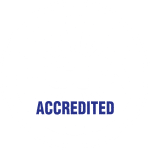Learn More
VERY IMPORTANT: ATC is a Faith-Based discipleship program, not a medical or clinical treatment program. Adult & Teen Challenge programs are designed for individuals seeking a new life in Christ, free from addiction.
Who We Are
ATC is a Christ-centered discipleship program with multiple programming models including short-term and long-term residential care, nonresidential programs such as small group facilitation and licensed counseling, and outpatient/crisis center services. Adult & Teen Challenge programs are designed for individuals seeking a new life, found in Christ, free from addiction.
ATC Organization
ATC is not a single nonprofit corporation, but individual nonprofit corporations that operate under an affiliation agreement with ATCUSA to legally use the ATC name which includes compliance with national accreditation standards and eligibility for national discounts on events and program resources such as curriculum and staff/leadership development.
There is a distinct difference between the ATCUSA National Office and the ATC affiliates (centers) operating throughout North America. Unlike the local ATC ministry, ATCUSA operates as an independent non-profit while also serving as a direct partner of the Assemblies of God (AG) U.S. Missions Department. The ATC National Office’s relationship with the AG provides a church covering for protection against federal and state legislation that is counter to the beliefs and doctrine of the Bible. This relationship also allows the local independent centers to gain access to different types of AG funding programs available at the AG district level.
Each ATC organization must operate as its own nonprofit corporation with its own Board of Directors, etc., with no legal or supervisory connection to any local church ministry or other non-ATC organization.
There are generally two types of ATC organizations. The first is the ATC organization which operates a larger system of centers with two or more satellite residential programs or outreach offices located in multiple cities and/or states. This type of organization can cover a whole state, part of a state, or be multi-state in its ministry scope. The second type is the stand-alone ATC organization whose ministry outreach is more local and typically one or two centers.
Each new ATC center is responsible for raising its operational budget from the local area or region under the direct leadership of the governing ATC corporation. The National Office will work with the current ATC corporations and invest resources where appropriate to support new growth.
New Center Development
Several factors are taken into consideration when looking at new center development. The following must be considered before moving forward:
- Does the selected market have a need for Christ-centered recovery ministry? How many current ministries (ATC and other Faith-Based ministries) exist in the market, and where are they located? A market analysis is required to provide this information.
- Can the selected market sustain fund development? How large is the general population? How many businesses and churches are located in the market? A feasibility study on giving potential is required.
- What is the recovery need in the market? What addiction trends exist? How many people are struggling with alcohol & substance use in the market and surrounding communities? State-level data is available in all 50 states.
- What are the qualifications of the individual(s) applying to start a new ATC program and the feasibility of their business/ministry plan, including addressing the considerations above?
All the above should be considered with prayer and seeking the will of God by all parties involved.
Adolescent Programs
Adolescent ATC programs are essentially Christian Boarding schools. In addition to the discipleship classes required in all ATC programs, adolescent programs also must run a fully accredited Christian school. Some states will require that such a program be licensed with the teacher being fully credentialed. Like adult programs, adolescent programs also must raise an operational budget.
Our initial recommendation is you contact an existing ATC center and, if possible, volunteer for a season to see if this type of discipleship ministry environment is a good fit for you. For a list of programs near you, please visit our center finder.
Non-Residential Programs
Non-residential programming was developed to expand a residential ministry’s outreach into the surrounding towns and areas where they minister. Not everyone needing help requires a 12-18 month residential program. A non-residential ministry holds weekly meetings within the community and has a fully developed curriculum. A non-residential program requires less funding to operate than a traditional ATC program. A non-residential ministry is strongly recommended for those individuals who have a burden to help those struggling with life-controlling problems but do not qualify or feel suited to operate a residential program. To receive further information about non-residential programming, click here. All new non-residential ATC ministries are required to start up and run a non-residential ministry. It can be phased out if the program transitions into a residential model. Non-residential programming is a great tool to help build ministry support within both the community and surrounding towns as you begin your journey.





